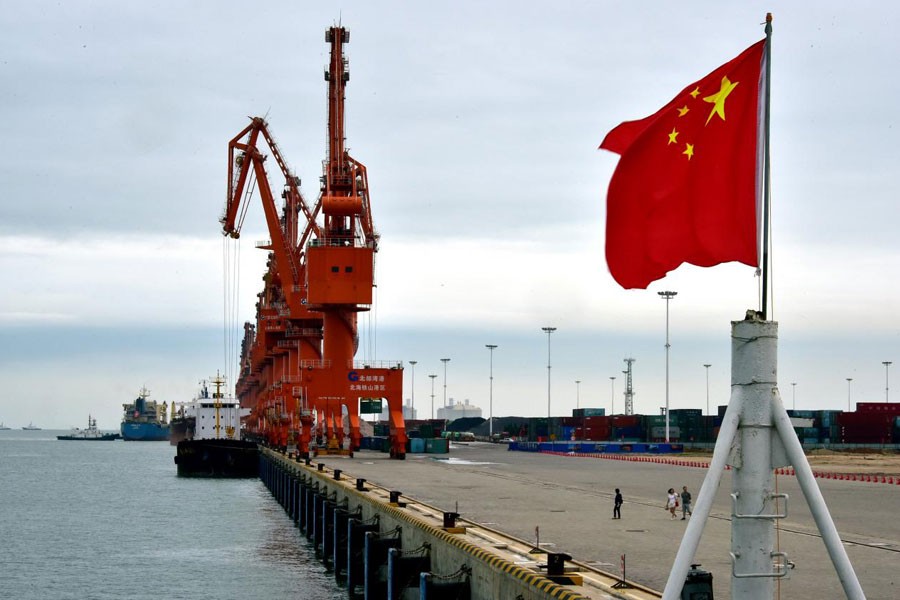China set its gross domestic product (GDP) growth target at 6.5 per cent on Monday for the year 2018, slower than 6.9 per cent achieved by the world's second largest economy last year.
The fiscal deficit ratio has been set at 2.6 per cent for this year, 0.4 percentage point lower than last year, according to the annual government work report delivered by the Chinese Premier Li Keqiang.
The premier presented the report of 2017 as well as aspirations and requirements for this year at the first session of the 13th National People's Congress at the Great Hall.
The country will continue to adopt a prudent, neutral monetary policy and a proactive fiscal policy to maintain stable economic growth while taking forceful measures to ward off financial risks, according to the draft report. The report will be mandated by the deputies at the congress.
China's year-on-year GDP growth was 6.9 per cent in 2017, higher than the targeted 6.5 per cent. Analysts forecast that the target might go up this year but remain on track. The out performance of GDP growth was for the first time in last seven years.
International Monetary Fund (IMF) in January this year raised its forecast for China's GDP growth from 6.5 per cent to 6.6 per cent amid an upbeat outlook for the global recovery.
International investment banks including UBS, J.P. Morgan and Nomura also revised their China 2018 GDP growth prediction upward to as high as 6.7 per cent.
The fiscal deficit is set at 2.38 trillion yuan ($375.2 billion) this year and the fiscal deficit to GDP ratio is set at 2.6 per cent, compared with 3.0 per cent set last year, according to the report. The government's expenditure is budgeted at 21 trillion yuan for 2018.
China says it will open doors wider to foreign investors this year by completely opening up its general manufacturing sector and expand access to a number of other sectors to achieve the growth.
The country will continue to achieve three major tasks to prevent major risks -- financial risks, targeted poverty alleviation and pollution control, the report said.
It said the nation's consumer inflation target, measured by the consumer price index (CPI), is around 3.0 per cent this year -- real CPI growth in 2017 was 1.6 per cent.
The country aims to create at least 11 million jobs in 2018 and keep the urban registered unemployment rate within 4.5 per cent, according to the report. The surveyed unemployment rate should be kept below 5.5 per cent.
China will also continue to lighten tax burden on businesses and individuals, by cutting 800 billion yuan in taxes this year, the report said.
It will also slash non-tax burdens on businesses by lightening the burden on market entities by over 300 billion yuan, according to the report.
The economy will also implement a long-term mechanism and targeted regulation to stabilise the real estate sector.
The country has taken targeted poverty alleviation programmes by reducing rural population by over 10 million, including 2.8 people who are to be relocated from inhospitable areas, the report said.
The 2018 defense budget will be 1.11 trillion yuan ($175 billion), according to the report. The defense budget rose by 8.1 per cent in 2018, up from last year's 7.0 per cent, matching with the growth of central government's expenditure, which is also 8.1 per cent.
Although slightly higher than the previous two years, the growth rate is the third time to dip into the single digit since 2013, following 7.6 per cent in 2016 and 7.0 per cent in 2017.


